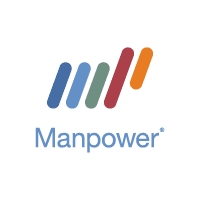All HR professionals are all too familiar with the challenge of finding IT staff in the current climate. This is particularly the case in the tech sector, where the shortage of skilled workers has become acute. This makes it crucial for you to proceed as carefully as possible when recruiting people for your business. After all, within each individual candidate could lie the skills and drive to raise your IT department to the next level. In order to not overlook any details (and not to squander any opportunities), the interview itself should be well planned out and conducted carefully. Below you will discover what is important and which questions you should ideally ask the candidates.
Your interview with IT applicants: an excellent structure creates comparability
Before you head into the interviews, you should of course be well prepared. Among other things, you’ll need a comprehensive profile of the ideal candidate. To minimise the agony of choosing between applicants, you should follow a consistent structure during the interviews. This ensures comparability and gives you the most objective impression possible of their professional expertise and their suitability for your team and company. A list of meaningful questions will be of great help to you here. Below you’ll find tried-and-tested questions that you can modify depending on the specialisation required and specific situation of your organisation.
The 10 most important questions for IT applicants]
Why are you applying for this role? What attracted you to this IT vacancy at our company? - This question is a classic and will appear in some shape or form at every job interview. You really should ask it, however, as it shows whether and how much the applicant has researched your organisation. Delve a little deeper into any special IT challenges that your industry or company may be facing.
What qualifications do you have? What programming languages do you know? - How long ago did your candidate enter the IT industry? The applicant may have already provided this information in their CV. However, by addressing their qualifications at least in brief during the interview, you can verify whether there is a genuine knowledge underpinning their statements. You could also follow up with a question about further training or newly acquired skills.
Can you give specific examples of how you used your IT knowledge of XY in your previous job? - We recommend you follow up the previous question with another practical one. This way, you can dig a little deeper into their particular qualifications. At the same time, you’ll learn how the candidate works, what priorities they set for projects, and whether they actually have concrete practical experience with know-how that is particularly relevant to your company.
Explain the IT concept XY in simple terms - IT specialists are known for being coding wizards, but they’re often not quite as adept at interpersonal skills. Does the candidate have the patience and resilience required for the role? Can they empathise with others? You should definitely be looking out for soft skills such as communication.
From your perspective, what are the pros and cons of technology XY? - Does the candidate have an analytical mind that can think critically? Can they come to their own conclusions and express them? How good is their ability to solve problems? You’ll be able to find out by asking this question.
What has been your greatest success in IT? What has been your most exciting IT project so far? - This is one of the most important questions, because it gives the applicant room to express themselves. It is a good idea to expand on this by asking follow-up questions.
What are the most important IT trends in XY? - Of course, you want to identify a candidate who is up to date with current trends. Also ask what information sources, IT knowledge resources or online utilities the candidate uses.
How do you want and intend to develop professionally? - Another classic question. In IT job interviews, this takes on an additional dimension due to the dynamics in this specialist area and the particular importance of ongoing training. For the company, this also makes it easier to assess how the candidate and their career plans fit in with the company’s goals in both the medium and long term.
What is important to you when working together in an IT team? - In the IT sector, soft skills will also become increasingly important in the future, such as for agile collaboration with business experts. You can gauge these skills and soft skills throughout your interaction with them in the interview itself – and through examples in which the applicant should describe their working style and approach to solving problems.
Can you tell us about a failure or mistake you made at your previous job? - Making mistakes is only human – especially in the IT sector. After all, despite all the IT automation in the digital era, where new approaches and technologies are constantly being applied and thus also learned, not everything always works out seamlessly the first time. However, it’s vital that the applicant acknowledges their mistakes and is able to learn from them – all in the spirit of agile collaboration. Ask them how they dealt with the mistake.
How to recognise a good IT candidate during an interview
Various aspects are important during an IT job interview: check their professional qualifications, record their personality and assess their suitability for your team. You can find out all these things by asking the questions you had prepared beforehand.
However, feel free to go beyond the standard questions. Formulate creative questions or set a challenging task. This way, you also have an opportunity to showcase your corporate culture. This is an important element because, after all, the employer is also promoting themselves to the employee – especially in light of the current job market situation. Depending on the role, you can mix things up a little to lighten the mood and get a better overall impression. For example, you could give them a tour of your department or invite them to have lunch with you.
Interviewing IT candidates: What to look for in an applicant’s answers
The applicant was able to answer all your questions – great! Now you can write upa brief summary and go through the most important points in a more detailed assessment. In addition to looking at their skills and expertise, you should also keep in mind their loyalty to their previous employer. Minus points in this area are a definite no-go.
Is the applicant honest, motivated, open and flexible? Do they respond in a constructive manner to challenging or unexpected questions? A willingness to learn combined with a solution-oriented attitude are of particular importance in the IT sector. Proceed systematically and compare which applicant most meets the important criteria – and there you are, you have identified the perfect candidate! What if no one comes along? Well, the process will just start all over again.
To help you recruit appropriately qualified IT candidates to fit into communication-driven teams, why not take advantage of Experis’ range of specialised recruitment services?


